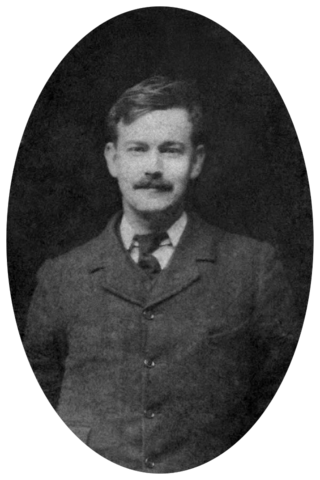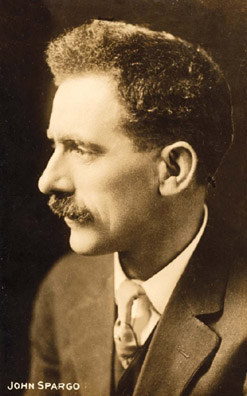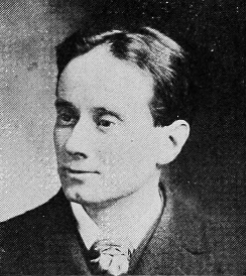Related Research Articles
Socialism is an economic and political philosophy encompassing diverse economic and social systems characterised by social ownership of the means of production, as opposed to private ownership. It describes the economic, political, and social theories and movements associated with the implementation of such systems. Social ownership can take various forms, including public, community, collective, cooperative, or employee. As one of the main ideologies on the political spectrum, socialism is considered the standard left wing ideology in most countries of the world. Types of socialism vary based on the role of markets and planning in resource allocation, and the structure of management in organizations.
The Christian Social Union (CSU) was an organisation associated with the Church of England, with some similar features to the Social Gospel movement of North America. The group was established in 1889 and dedicated itself to the study of contemporary social conditions and the remedying of poverty and other forms of social injustice through public mobilisation to alleviate the same. The organisation was terminated by merger in 1919, becoming part of the Industrial Christian Fellowship (ICF).

The Independent Labour Party (ILP) was a British political party of the left, established in 1893 at a conference in Bradford, after local and national dissatisfaction with the Liberals' apparent reluctance to endorse working-class candidates. A sitting independent MP and prominent union organiser, Keir Hardie, became its first chairman.
The Christian left is a range of Christian political and social movements that largely embrace social justice principles and uphold a social doctrine or social gospel based on their interpretation of the teachings of Christianity. Given the inherent diversity in international political thought, the term Christian left can have different meanings and applications in different countries. While there is much overlap, the Christian left is distinct from liberal Christianity, meaning not all Christian leftists are liberal Christians and vice versa.
Christian socialism is a religious and political philosophy that blends Christianity and socialism, endorsing socialist economics on the basis of the Bible and the teachings of Jesus. Many Christian socialists believe capitalism to be idolatrous and rooted in the sin of greed. Christian socialists identify the cause of social inequality to be the greed that they associate with capitalism. Christian socialism became a major movement in the United Kingdom beginning in the 19th century. The Christian Socialist Movement, known as Christians on the Left since 2013, is one formal group, as well as a faction of the Labour Party.

Richard Henry Tawney was an English economic historian, social critic, ethical socialist, Christian socialist, and important proponent of adult education. The Oxford Companion to British History (1997) explained that Tawney made a "significant impact" in these "interrelated roles". A. L. Rowse goes further by insisting that "Tawney exercised the widest influence of any historian of his time, politically, socially and, above all, educationally".
Religious socialism is a type of socialism based on religious values. Members of several major religions have found that their beliefs about human society fit with socialist principles and ideas. As a result, religious socialist movements have developed within these religions. Those movements include Buddhist socialism, Christian socialism, Islamic socialism, and Jewish socialism. According to the Encyclopedia Britannica Online, socialism is a "social and economic doctrine that calls for public rather than private ownership or control of property and natural resources. According to the socialist view, individuals do not live or work in isolation but live in cooperation with one another. Furthermore, everything that people produce is in some sense a social product, and everyone who contributes to the production of a good is entitled to a share in it. Society as a whole, therefore, should own or at least control property for the benefit of all its members. [...] Early Christian communities also practiced the sharing of goods and labour, a simple form of socialism subsequently followed in certain forms of monasticism. Several monastic orders continue these practices today".
Common ownership refers to holding the assets of an organization, enterprise or community indivisibly rather than in the names of the individual members or groups of members as common property.

Socialist Sunday Schools (SSS) were set up to replace or augment Christian Sunday Schools in the United Kingdom, and later the United States. They arose in response to the perceived inadequacy of orthodox Sunday schools as a training ground for the children of socialists and the need for an organised, systematic presentation of the socialist point of view to teach the ideals and principles of socialism to children and young people.

John Spargo was a British political writer who, later in life, became an expert in the history and crafts of Vermont. At first Spargo was active in the Socialist Party of America. A Methodist preacher, he tried to meld the Protestant Social Gospel with Marxist socialism in Marxian Socialism and Religion: A Study of the Relation of the Marxian Theories to the Fundamental Principles of Religion (1915). He also founded a settlement house in Yonkers, N.Y. Spargo moved steadily to the right after 1917 when he supported American intervention in World War I. With AFL leader Samuel Gompers he organized the American Alliance for Labor and Democracy in 1917. Spargo helped draft the Colby Note that formalised the Wilson administration's anti-communist policies. He strongly denounced the Bolshevik Revolution in Bolshevism: The Enemy of Political and Industrial Democracy (1919). He opposed the foreign policy of the New Deal, especially its recognition of the USSR in 1933. He supported the House Un-American Activities Committee in the late 1930s and Senator Joseph McCarthy in the early 1950s. He endorsed Barry Goldwater In the 1964 Elections.
William Dwight Porter Bliss (1856–1926) was an American Episcopal priest and one of the most famous and influential Christian socialists at the turn of 20th century. As a devout churchman, organizer, public speaker and an editor of numerous publications for over 40 years, Bliss became a central figure for the entire Christian socialist movement.
The Labour Church was an organization intended to give expression to the religion of the labour movement. It had a Christian socialist outlook, specifically called theological socialism.

The International Association of Red Sports and Gymnastics Associations, commonly known as Red Sport International (RSI) or Sportintern was a Comintern-supported international sports organization established in July 1921. The RSI was established in an effort to form a rival organization to already existing "bourgeois" and social democratic international sporting groups. The RSI was part of a physical culture movement in Soviet Russia linked to the physical training of young people prior to their enlistment in the military. The RSI held 3 summer games and 1 winter games called "Spartakiad" in competition with the Olympic games of the International Olympic Committee before being dissolved in 1937.

The Fabian Society is a British socialist organisation whose purpose is to advance the principles of social democracy and democratic socialism via gradualist and reformist effort in democracies, rather than by revolutionary overthrow. The Fabian Society was also historically related to some of the furthest left factions of radicalism, a left-wing liberal tradition.

Joseph Clayton (1867–1943) was an English freelance journalist and biographer. A writer of numerous books, he covered areas of trade union and socialist history, but also religious figures and history.
Reformism is a political tendency advocating the reform of an existing system or institution – often a political or religious establishment – as opposed to its abolition and replacement via revolution.
A robust tradition of Christian socialism in Utah developed and flourished in the first part of the 20th century, playing an important part in the development and expression of radicalism in Utah. Part of a larger, nationwide movement in many American Protestant churches, the Christian socialist movement was particularly strong in Utah, where dedicated Christian socialist ministers were fierce advocates for the miners laboring in the Mountain states.
African-American socialism is a political current that emerged in the nineteenth century, specifically referring to the origins and proliferation of Marxist ideologies among African-Americans for whom socialism represents a potential for equal class status, humane treatment as laborers, and a means of dismantling American capitalism. Black liberation is in line with Marxist theory, which asserts that the working class, regardless of race, has a common interest against the bourgeoisie.

Margaret Anderson Watts was an American social reformer in the temperance movement, writer, and clubwoman. She was a deep thinker on the most advanced social and religious topics of her day, and occasionally published her views on woman in her political and civil relations. She was the first Kentucky woman who wrote and advocated the equal rights of woman before the law, and who argued for the higher education of woman. She served as president of the Woman's Christian Temperance Union (WCTU) of Kentucky, and as the National WCTU's Superintendent of police matrons.
References
- 1 2 3 Preuss, Arthur (1924). "Christian Socialist Fellowship". A Dictionary of Secret and Other Societies ... B. Herder Book Company. pp. 89–90. Retrieved 17 October 2024.
 This article incorporates text from this source, which is in the public domain .
This article incorporates text from this source, which is in the public domain . - ↑ "Pass Suffrage Resolution. Christian Socialism Conference Endorses Right of Ballot for Women". The Evening Times-Star. Alameda, California. 26 August 1911. p. 8. Retrieved 17 October 2024– via Newspapers.com.
 This article incorporates text from this source, which is in the public domain .
This article incorporates text from this source, which is in the public domain . - ↑ Bliss, William Dwight Porter; Binder, Rudolph Michael (1908). "Christian Socialist Fellowship". The New Encyclopedia of Social Reform: Including All Social-reform Movements and Activities, and the Economic, Industrial, and Sociological Facts and Statistics of All Countries and All Social Subjects. Funk & Wagnalls. p. 205.
 This article incorporates text from this source, which is in the public domain .
This article incorporates text from this source, which is in the public domain . - 1 2 "Christian Socialist Fellowship". The Ottawa Daily Republic. Ottawa, Kansas. 28 May 1908. p. 2. Retrieved 17 October 2024– via Newspapers.com.
 This article incorporates text from this source, which is in the public domain .
This article incorporates text from this source, which is in the public domain . - 1 2 3 4 5 6 White, Eliot (January 1909). "The Christian Socialist Fellowship". The Arena. 41 (229). Arena Publishing Company: 47–52. Retrieved 17 October 2024.
 This article incorporates text from this source, which is in the public domain .
This article incorporates text from this source, which is in the public domain . - ↑ "No reform from within". The Labor Digest. 5. Minneapolis: Union Publishing Company. June 1912. Retrieved 17 October 2024.
- ↑ Saloman, Samuel (1922). The Red War on the Family. Little & Ives. p. 59. Retrieved 17 October 2024.
 This article incorporates text from this source, which is in the public domain.
This article incorporates text from this source, which is in the public domain. - ↑ "Christian Socialist Fellowship (1906-191X) history". www.marxisthistory.org. Retrieved 17 October 2024.